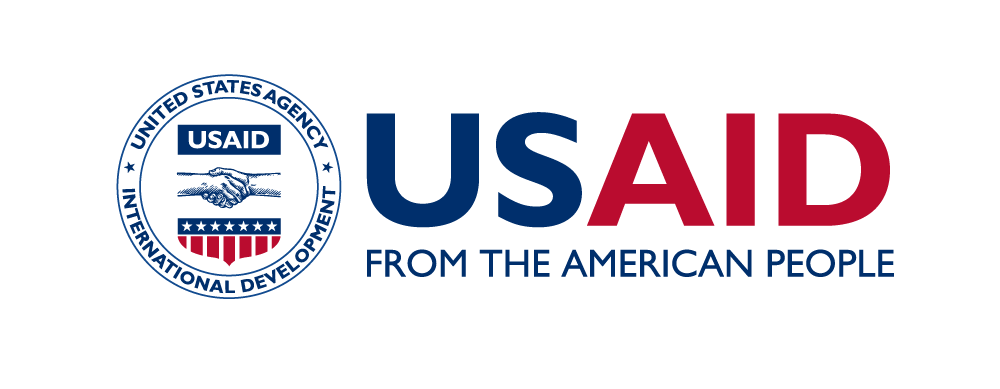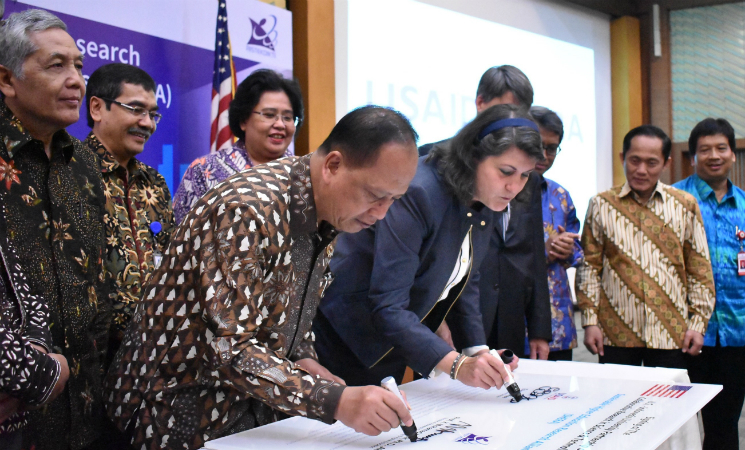

Partnership Structure
By establishing Centers for Collaborative Research (CCRs) within top Indonesian universities, USAID SHERA and the Indonesian Ministry of Higher Education, Technology and Research worked to bring together Indonesian and U.S. scholars to conduct world-class research within priority science and technology research areas.
Each of the five CCRs was comprised of at least five partnership members – one lead, top-tier Indonesian HEI that hosted the CCR, at least three affiliate Indonesian HEIs, and at least one U.S. university. Partnership members also include local governments, research institutions, NGOs, and the private sector. This design brought together Indonesian and U.S. scholars, as well as local partners, to conduct world-class research in focus areas critical to Indonesia’s development.
CCRs further enhanced the capacity of top Indonesian scholars while requiring them to share their knowledge and skills with peers from their universities and affiliate institutions across the country that have limited research capacity.
Priority Research Focus Areas
Each CCR centered around a unique research focus area:
- Food Security and Self Sufficiency – This focus area includes bio-technology, adaptations to sub-optimal land, technological advancements in fisheries, post-harvest technology, innovative agricultural methods and cultivation techniques; water pollution and other research that will address communities’ self-sufficiency, resilience and access to safe and nutritious food and potable water.
- Environment, Energy and Maritime Sciences – This focus area includes marine and terrestrial preservation and management; forest stewardship; low-carbon land-use; climate change mitigation and low carbon energy systems; maritime management; coral reef conservation; natural disaster prevention and management; renewable energy development and field substitution technology and other research that will support Indonesia’s movement towards increased bio-diversity preservation and a green economy.
- Public Health and Infectious Disease – This focus area includes disease prevention; advancements in medical biotechnology and diagnostic technology and other research topics that will support Indonesia’s capacity to treat and prevent disease and improve citizens’ quality-of-life.
- Urban Development and Planning – This focus area includes city planning; smart cities; civil engineering and infrastructure development; green building and other research that will address the challenges related to rapid urbanization and the impacts of increased population density.
- Innovative Technologies – This focus area includes advanced materials development; transportation safety technology and management; nanotechnology; ICT, telecommunications, and wireless access and other innovations in research related to technological advancements.